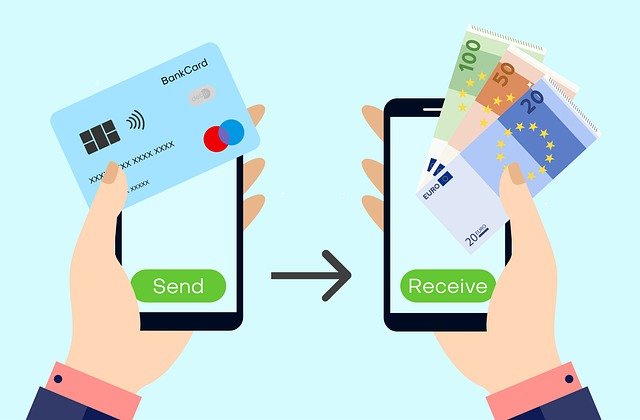Hey there! Ever found yourself in a situation where you have a credit card but need some quick cash? We’ve all been there. Whether paying for that unexpected expense or simply needing cash for something that doesn’t accept cards, knowing how to transfer money from credit card to bank account can be a lifesaver. And guess what? It’s not rocket science! Let’s dive into the nitty-gritty in the most fun and easy-to-understand way possible.
The Lowdown: Can You Do That?
Yes, you absolutely can! Credit cards are fantastic for many things, but sometimes you need cold, hard cash in your bank account. Here’s how you can do it both online and offline, plus some things to watch out for.
Method 1: Transfer Money from Credit Card Online 💻📱
If you’re a fan of doing things from the comfort of your couch, transferring money from your credit card to your bank account online is the way to go. There are two main ways to do this:
Net Banking:
- Step 1: Log in to your credit card issuer’s website or mobile app.
- Step 2: Head over to the “Transfers” or “Balance Transfers” section.
- Step 3: Choose the bank account you want to send the money to.
- Step 4: Enter the amount you need to transfer.
- Step 5: Review the details and hit confirm! 💸
Heads Up: There’s usually a fee of around 3% to 5% of the transfer amount. Not a bad trade-off for convenience, right?
Phone Call:
- Step 1: Dial up your credit card issuer’s customer service.
- Step 2: Provide your account details and request a balance transfer.
- Step 3: Give them your bank account info and the amount you want to transfer.
- Step 4: Confirm everything with the customer service rep, and you’re good to go! 📞
Method 2: Going Old School (Offline) 🏦✍️
Prefer the old-school approach? You can transfer money from credit card offline too, using either cheques or by withdrawing cash from an ATM.
Using Cheques:
- Step 1: Write a cheque to yourself. (Yes, you’re that important!)
- Step 2: In the memo, write something like “Credit Card Balance Transfer.”
- Step 3: Sign it, and drop it off at your bank. Done!
Cash from ATM:
- Step 1: Withdraw cash using your credit card at an ATM.
- Step 2: Take that cash and deposit it into your bank account. Simple!
Remember: ATM withdrawals come with fees too—typically 3% to 5%—and interest starts ticking right away. So, use this option sparingly.
A Quick Example for You
Imagine you need to transfer ₹20,000 from your credit card to your bank account to cover an unexpected medical expense. If your credit card issuer charges a 4% fee for the transfer, you’ll pay ₹800 just in fees. Plus, if your interest rate on cash advances is 24% per annum, that’s an additional ₹400 in interest if you don’t pay it off within the month. So, it’s essential to be aware of the costs before you make the transfer.
Here’s What Different Banks Charge 🏦📊
To give you a better idea of what to expect, here’s a quick comparison of the fees charged by various banks in India for transferring money from a credit card to a bank account:
| Bank Name | Credit Card Type | Transfer Fee | Cash Advance Fee | Interest Rate on Cash Advances |
| HDFC Bank | HDFC Regalia Credit Card | 2.5% (min ₹500) | 2.5% (min ₹500) | 24% per annum |
| ICICI Bank | ICICI Platinum Credit Card | 3% (min ₹300) | 2.5% (min ₹300) | 28% per annum |
| Axis Bank | Axis Select Credit Card | 2.5% (min ₹300) | 2.5% (min ₹300) | 27% per annum |
| SBI | SBI Card Elite | 2.5% (min ₹500) | 2.5% (min ₹500) | 25-30% per annum |
| Kotak Mahindra Bank | Kotak Royale Signature Card | 2.5% (min ₹500) | 2.5% (min ₹300) | 30% per annum |
Note: These fees and rates can vary based on your specific credit card and the bank’s terms. Always check the latest information from your credit card issuer.
Before You Hit That Transfer Button… ⚠️
Here are some important things to consider before moving money from your credit card to your bank account:
- Fees: As mentioned earlier, you’re likely to pay a fee between 3% and 5%.
- Interest: Unlike purchases, interest on transferred amounts starts accumulating immediately.
- Credit Score: A balance transfer might slightly ding your credit score. Don’t worry, it’ll bounce back, but it’s something to keep in mind.
- Eligibility: Not all credit cards allow transfers, and there may be limits on how much you can move.
- Read the Fine Print: Always, always check the terms and conditions!
So, Should You Do It? 🤔
Transferring money from your credit card to your bank account can be helpful in a pinch, but it’s not always the best option due to the fees and interest. Consider alternatives like personal loans if you have a larger expense.
And hey, if you’re looking for more ways to manage your finances, why not become a PickMyWork Sales Partner and earn while you’re at it? Work for just 1-2 hours a day and see the cash roll in!
So, what are you waiting for? Download the app and start exploring today!

